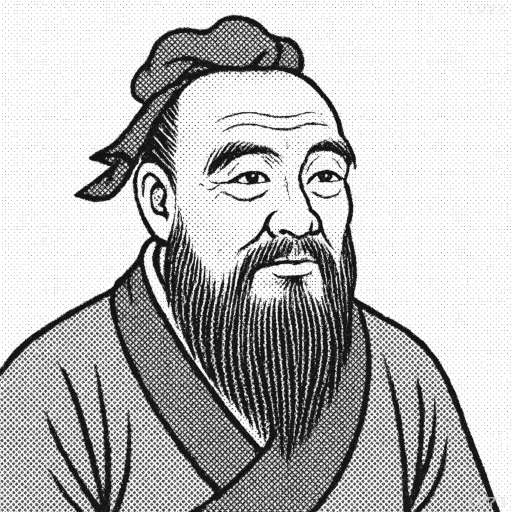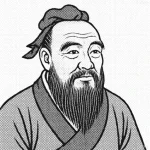“When we see persons of worth, we should think of equaling them; when we see persons of a contrary character, we should turn inwards and examine ourselves.”

- 551 BC – 479 BC
- Han ethnicity
- Philosopher, educator, politician
table of contents
Quote
“When we see persons of worth, we should think of equaling them; when we see persons of a contrary character, we should turn inwards and examine ourselves.”
Explanation
In this saying, Confucius advises a dual approach to personal growth: aspiration and self-reflection. When encountering individuals of high character, Confucius suggests using their example as inspiration to improve ourselves. Their virtues and accomplishments can motivate us to strive for our own potential. Conversely, when we observe others displaying negative qualities, rather than judging them, we should look inward to see if we harbor similar tendencies. This approach fosters a practice of self-awareness and prevents us from becoming overly critical of others.
This wisdom is especially relevant today, as social comparisons are more common than ever. Instead of falling into jealousy or criticism, we can view others as mirrors for our own growth. For example, seeing a person known for their kindness or integrity can inspire us to nurture similar traits in ourselves. Alternatively, witnessing dishonesty or rudeness can prompt us to examine if we sometimes act similarly and need to improve. This reflection enables us to cultivate a more balanced and humble perspective.
Confucius’s advice encourages us to embrace learning from others while keeping our focus on our own journey of self-improvement. By seeking to emulate the good and examining our own faults, we move toward a life of greater integrity, humility, and self-mastery. This approach builds inner strength and fosters a continuous cycle of growth and self-awareness.
Would you like to share your impressions or related stories about this quote in the comments section?


